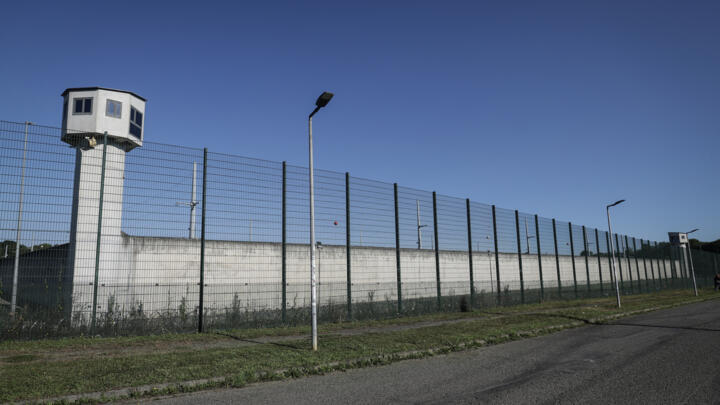France Transfers Notorious Drug Traffickers to High-Security Prison in Major Crackdown

Paris, The Gulf Observer: France on Tuesday began relocating some of its most notorious drug traffickers to the high-security prison of Vendin-le-Vieil in the northern region, as part of a sweeping campaign to dismantle narcotics networks operating from within the country’s prison system.
Seventeen high-profile drug traffickers — described as “among the most dangerous in our country” — were transferred under exceptional security arrangements, Justice Minister Gérald Darmanin announced via social media platform X.
Seven heavily guarded prison vans, accompanied by police motorcycle escorts, arrived at the facility, which is one of France’s most secure detention centres. The move signals the beginning of a wider initiative to incarcerate around 200 of the nation’s most dangerous traffickers in two top-tier prisons: Vendin-le-Vieil and the soon-to-open high-security wing in Condé-sur-Sarthe, scheduled for October.
“This marks a turning point in our efforts to combat drug trafficking,” Darmanin said, reaffirming his commitment to ensuring that criminal networks cannot operate behind bars.
David Lacroix, a representative of the FO Justice union, confirmed that approximately 60 of the 100 inmates scheduled for transfer to Vendin-le-Vieil are expected to arrive by the end of July, with the remainder due by mid-September. He added that the prisoners originate from both mainland France and overseas territories, including the Caribbean.
“Their daily lives will change significantly,” Lacroix stated.
Under the new regime, authorities will implement stringent security measures, including jamming mobile phone signals and enforcing mandatory searches after all prisoner contact with the outside world.
Thomas Vaugrand, representing the Ufap Unsa Justice union, noted that the goal is to increase the isolation of these high-risk inmates, many of whom possess substantial financial resources and influence capable of sustaining drug operations or ordering violent crimes from within prison walls.
“These are high-profile inmates,” Vaugrand said. “The measures are designed to prevent any further criminal coordination from behind bars.”
The Vendin-le-Vieil facility has undergone a series of upgrades to reinforce security. The exercise yard has been concreted to prevent concealment of illicit items, airport-style body scanners have been installed, and additional grating has been added to cell bars. New hatches on cell doors allow inmates to be handcuffed before exiting, while reinforced glass partitions now prevent physical contact during visits.
Among the most prominent individuals expected to be housed at Vendin-le-Vieil is Mohamed Amra, also known as “The Fly,” a notorious drug baron whose violent escape last year from a prison transport van resulted in the deaths of two prison officers. That attack served as a catalyst for the current overhaul of France’s prison security protocol.
The government’s crackdown reflects a broader strategy to eradicate organized drug crime by targeting its operational bases, both on the streets and behind bars.


